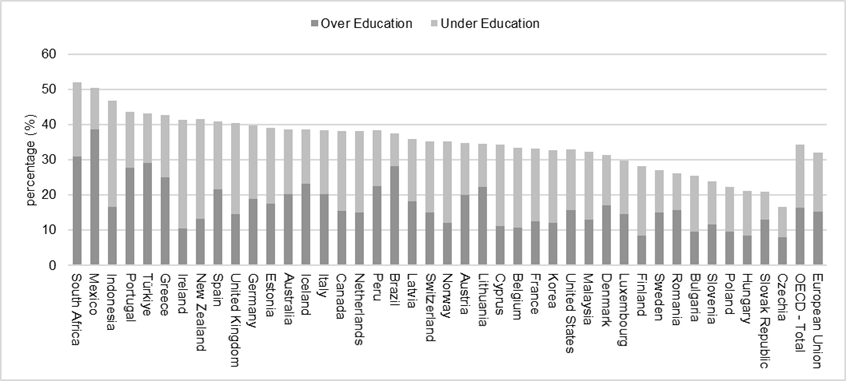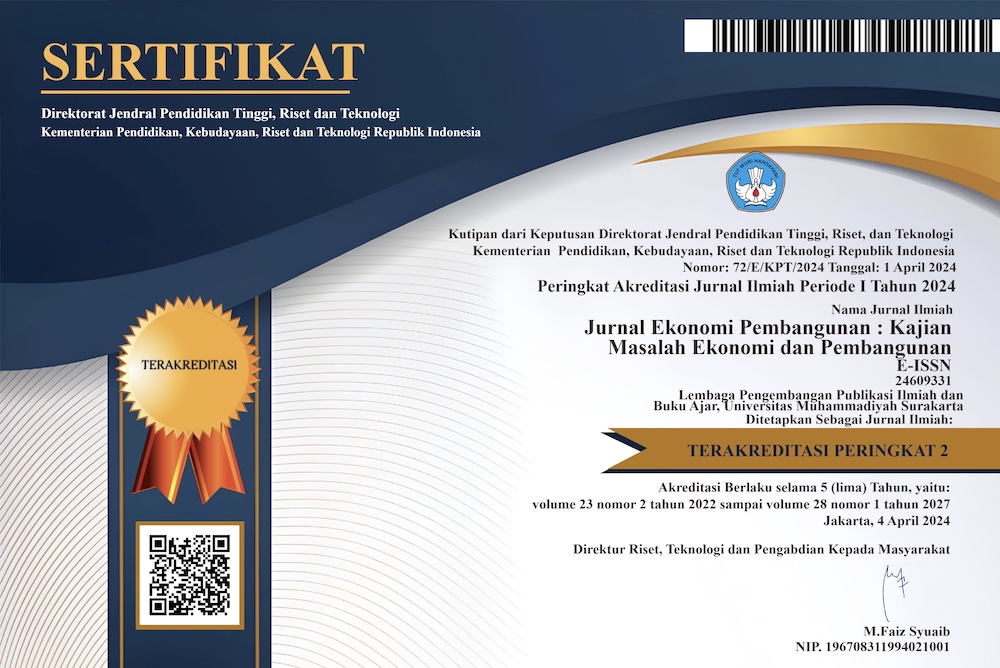Exploring Determinants of Education-Job Mismatch Among Educated Workers in Indonesia
DOI:
https://doi.org/10.23917/jep.v25i2.23994Keywords:
Education-job mismatch, educated worker, labour force, IndonesiaAbstract
This study examines the determinants of education-job mismatch among educated workers in Indonesia, focusing on factors influencing job matching, over-education, and undereducation. Using data from the 2022 National Labor Force Survey (Sakernas), a multilevel multinomial logit regression analysis reveals that age, gender, education level, and regional characteristics significantly affect mismatch outcomes. Older workers are more likely to experience over-education but less likely to face under-education, while women are disproportionately over-educated. Higher education levels increase the likelihood of overeducation, reflecting inefficiencies in translating qualifications into appropriate jobs. Regional disparities, such as higher minimum wages and economic concentration in JavaBali, exacerbate over-education. Sectoral GDP in services and industry is positively associated with over-education, while employment in agriculture reduces mismatch risks. Urban residence improves job matching, but rural areas face higher under-education rates. To address these challenges, targeted policies are needed including enhanced career counseling, vocational training, and stronger collaboration between education providers and industry. Regional development initiatives and gender-equity programs are vital to reducing disparities. Strengthening labor market information systems and digital job-matching platforms can mitigate informational asymmetries, optimize workforce productivity, and foster sustainable economic growth.
Downloads
















